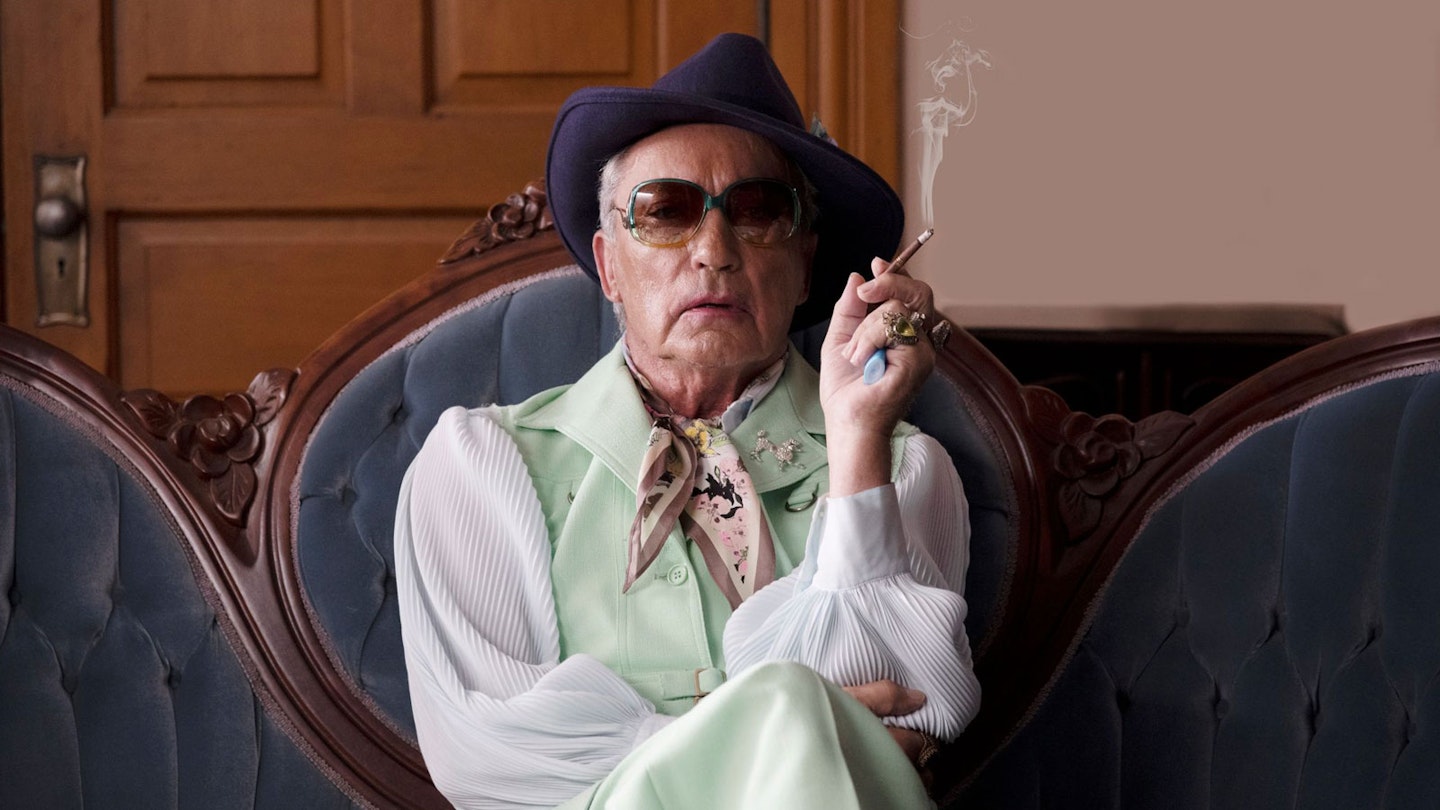Veteran German character actor Udo Kier has appeared in over 200 films, from Breaking The Waves to Ace Ventura: Pet Detective. He’s worked with everyone from Martin Scorsese to Rainer Fassbinder. He’s played everyone from the Pope to Hitler. He has the kind of familiar face that will have you reaching for your IMDb app, a true, “Oh, that guy!” chameleon. It’s fitting, then, that his first leading role — at the ripe old age of 77 — is a proper character, with a capital C.
After decades as a day player on other people’s films, there’s something sublime about seeing Kier dominate every scene of this gentle, tender dramedy, and he doesn’t squander the opportunity. He plays Pat Pitsenbarger — based on a real-life “queer legend” of the same name from Sandusky, Ohio — with a mixture of wistful sadness, cranky irascibility and glitter-encrusted camp, and gives the role texture and tenacity. When we first meet Pat, he seems like any other resident of his care home: a grumpy old codger, dressed head to toe in grubby slacks, who’s not so hot on his feet anymore.

Then, when One Last Job arrives out of nowhere, Pat makes his way — on foot — to the funeral, gathering materials and memories as he goes. Writer-director Todd Stephens ekes out details of Pat’s eventful life slowly across the running time. There’s a former partner, who seems to have passed in tragic circumstances; his former home, now an empty plot of land; an arch-rival hairdresser and stylist, played with typical larger-than-life glamour by Jennifer Coolidge; and the deceased client who set him on the journey in the first place, whom he describes as a “demanding Republican monster”, before adding, with a slight upturned smile, “...I adored her.”
It makes the biggest impact when positioning Pat as a kind of elder statesman of the LGBTQ community.
Stephens’ script is peppered with these bittersweet reflections, and it makes the biggest impact when positioning Pat as a kind of elder statesman of the LGBTQ community. One beautifully pitched scene sees Pat and an old friend ruefully watch two young gay dads play with their kids, the years of once-unthinkable progress there in front of their eyes. Later, Pat visits a gay club and regular old haunt, only to learn it is closing down, and the film ponders where LGBTQ people can find a sense of community when such friendly spaces disappear.
Outside of these scenes, however, the film feels a little thinly sketched, treading water dramatically while Pat moves on to his next nostalgic encounter. It verges on slight: the film’s highest stakes concern Pat tracking down an old brand of shampoo. But it has a winningly reflective warmth to it, and credit must go to Kier’s performance for making Pat just so damn likeable, in spite of his withering scowls. He serves up looks in all manner of fabulous fashions — from a pastel safari suit to an old lady’s pink hat — while chain-smoking cigarillos, and through it all, still somehow remains wistful. It’s a reminder that he is one of our most valuable character actors; here’s hoping it doesn’t take another 200 films before his next lead role.
